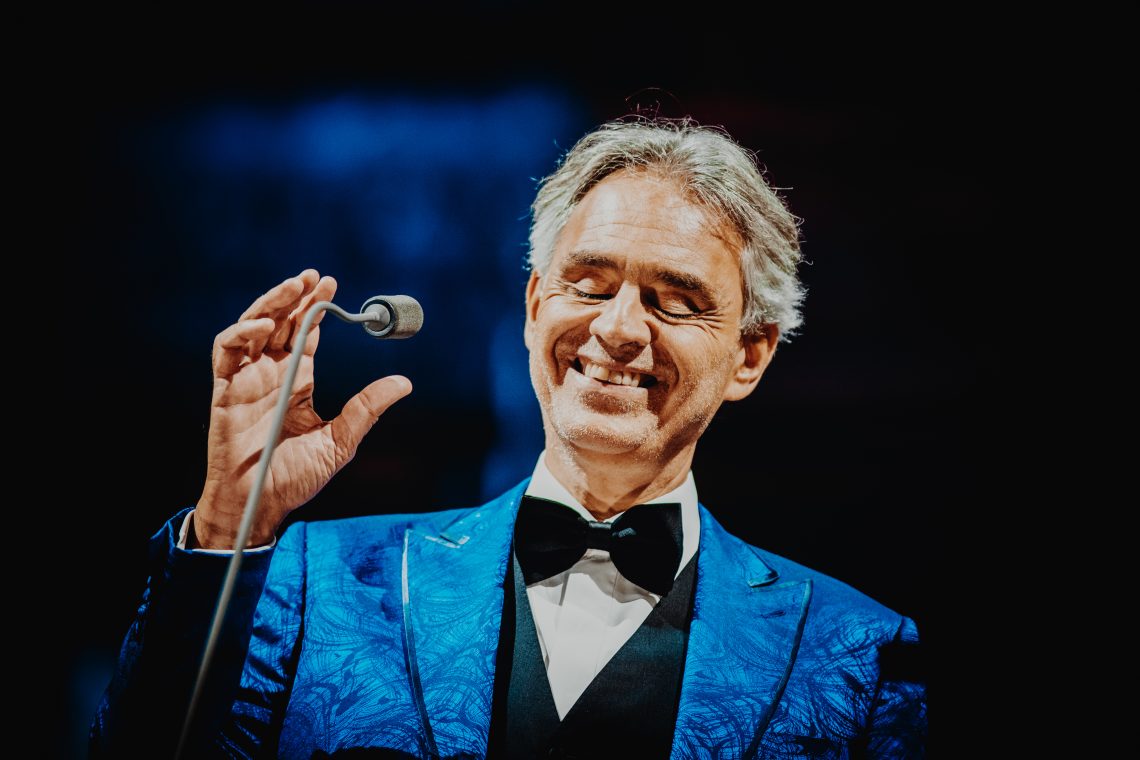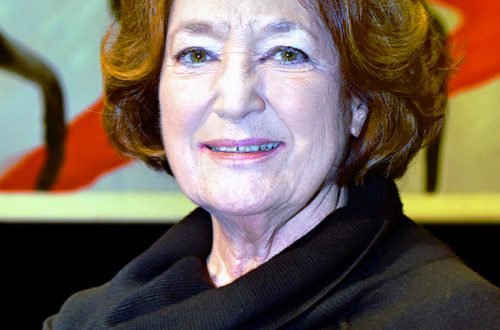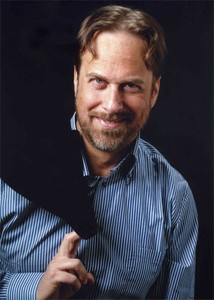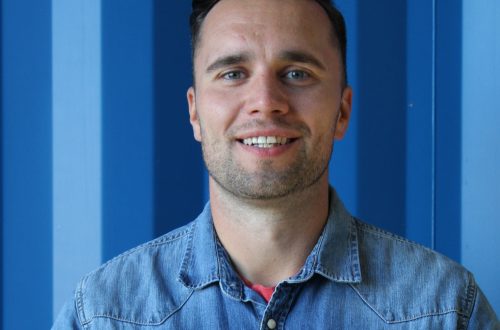
Andrea Bocelli |
Andrea Bocelli
SHINE AND POVERTY ANDREA BOCELLI
It may be the most popular voice at the moment, but some people are starting to say that he is abusing it. One American critic asked himself, “Why should I pay $500 for a ticket?”
This is as much as a professor earns a week and as much as Vladimir Horowitz (a real genius!) earned for a concert twenty years ago. That’s more than the price of the Beatles when they landed in Manhattan.
The voice that provokes these conversations belongs to Andrea Bocelli, a blind tenor and a true phenomenon of the opera of the big village that the world is, “ap-after Pavarotti”, “after Pavarotti”, as the small specialized magazines say. This is the only singer who managed to merge together pop music and opera: “He sings songs like opera and opera like songs.” It may sound insulting, but the result is quite the opposite – a huge number of adoring fans. And among them are not only teenagers dressed in wrinkled T-shirts, but also endless lines of businesswomen and housewives and dissatisfied employees and managers in double-breasted jackets who ride the subway with a laptop computer on their lap and with a Bocelli CD in their player. Wall Street fits perfectly with La bohème. Twenty-four million CDs sold on five continents is no joke even for someone who is used to counting in billions of dollars.
Everyone likes the Italian, whose voice is able to mix melodrama with a song from San Remo. In Germany, the country that discovered it in 1996, it is constantly on the charts. In the US, he is a cult object: there is something human or too human about him that reconciles the housewife with the system of “stars”, from Steven Spielberg and Kevin Costner to the vice president’s wife. President Bill Clinton, “Bill the Saxophone” who knows by heart the music for the film “Kansas City”, declares himself among the admirers of Bocelli. And he wished that Bocelli sang in the White House and at the meeting of the Democrats. Now Papa Wojtyła has intervened. The Holy Father recently received Bocelli at his summer residence, Castel Gandolfo, to hear him sing the 2000 Jubilee anthem. And released this hymn into the light with a blessing.
This general agreement about Bocelli is somewhat suspicious, and from time to time some critic tries to determine the true scope of the phenomenon, especially since Bocelli decided to challenge the opera stage and become a real tenor. In general, from the moment he threw aside the mask behind which he hid his true ambitions: not only a singer with a beautiful voice, but a genuine tenor from the land of tenors. Last year, when he made his debut in Cagliari as Rudolf in La bohème, the critics were not lenient with him: “Short breath, flat phrasing, timid top notes.” Harsh, but fair. Something similar happened in the summer when Bocelli made his debut at the Arena di Verona. It was a triple backflip. Most sarcastic comment? The one expressed by Francesco Colombo on the pages of the newspaper “Corriere della sera”: “Solfeggio is a matter of choice, the intonation is highly personal, the accent is from the field of Pavarotti’s “I would like to, but I can’t.” The audience peeled off their palms. Bocelli gave a standing ovation.
But the real phenomenon of Bocelli thrives not in Italy, where the singers who sing easily whistled songs and romances are apparently invisible, but in the United States. “Dream”, his new CD, which has already become a bestseller in Europe, is in first place in terms of popularity across the ocean. Tickets for the concerts of his last stadium tour (22 seats) were all sold out in advance. Sold out. Because Bocelli knows his audience and his market sector well. The repertoire he presented was tested for a long time: a little Rossini, a little Verdi and then all the sung Puccini arias (from “Che gelida manina” from “La Boheme” – and here tears are shed – to “Vincero’” from “ Turandot”).* The latter, thanks to Bocelli, replaced the song “My way” at all congresses of American dentists. After a brief appearance as Nemorino (Gaetano Donizetti’s Love Potion serves as his take-off), he pounces on the ghost of Enrico Caruso, singing “O sole mio” and “Core ‘ngrato” sung according to the Neapolitan standard. In general, in any case, he is bravely faithful to the official iconography of the Italian in music. Then encores follow in the form of songs from San Remo and the latest hits. A big finale with “Time to say good-bye”, the English version of “Con te partiro'”, the song that made him famous and rich. In this case, the same reaction: the enthusiasm of the public and the coolness of the critics: “The voice is pale and bloodless, the musical equivalent of violet-flavored caramel,” commented the Washington Post. “Is it possible that the 24 million people who buy his records continue to make a mistake?” the director of Tower Records objected. “Of course it’s possible,” said Mike Stryker, the smart guy at the Detroit Free Press. “If a crazy pianist like David Helfgott. became a celebrity when we know that any first-year student at the conservatory plays better than him, then an Italian tenor can sell 24 million discs.”
And let it not be said that Bocelli owes his success to the widespread good nature and desire to protect him, caused by his blindness. Of course, the fact of being blind plays a role in this story. But the fact remains: I like his voice. “He has a very beautiful voice. And, since Bocelli sings in Italian, the audience has a feeling of familiarization with the culture. Culture for the masses. This is what makes them feel good,” explained Philips vice president Lisa Altman some time ago. Bocelli is Italian and especially Tuscan. This is one of his strengths: he sells a culture that is popular and refined at the same time. The sounds of Bocelli’s voice, so gentle, conjure up in the mind of every American a number with a beautiful view, the hills of Fiesole, the hero of the movie “The English Patient”, the stories of Henry James, the New York Times Sunday supplement that advertises the Chianti hills villa after villa, weekend end after weekend, the Mediterranean diet, which Americans believe was invented between Siena and Florence. Not at all like Ricky Martin, Bocelli’s direct competitor in the charts, who sweats and writhes. Well done, but too tied to the image of the B-series immigrant, as Puerto Ricans are considered today. And Bocelli, who understood this confrontation, follows a well-trodden path: in American interviews he receives journalists, quoting Dante’s “Hell”: “Having passed half my earthly life, I found myself in a gloomy forest …”. And he manages to do it without laughing. And what does he do in the pauses between one interview and another? He retires to a secluded corner and reads “War and Peace” using his computer with a Braille keyboard. He wrote the same thing in his autobiography. Temporary title – “Music of Silence” (copyright sold to Warner by the Italian publishing house Mondadori for 500 thousand dollars).
In general, success is more determined by Bocelli’s personality than by his voice. And readers, numbering in the millions, will eagerly read the story of his victory over a physical handicap, created specifically to touch, enthusiastically perceive his handsome figure of a romantic hero with great charm (Bocelli was among the 50 most charming men of 1998, named magazine “People”). But, although he was labeled a sex symbol, Andrea demonstrates a complete lack of vanity: “Sometimes my manager Michele Torpedine tells me:“ Andrea, you need to improve your appearance. But I don’t understand what he’s talking about.” Which makes him objectively cute. In addition, he is endowed with extraordinary courage: he skis, goes in for equestrian sports and won the most important battle: despite blindness and unexpected success (this can also be a handicap similar to physical), he managed to lead a normal life. He is happily married, he has two children and behind him is a strong family with peasant traditions.
As for the voice, now everyone knows that he has a very beautiful timbre, “but his technique still does not allow him to make the necessary breakthrough in order to win the audience from the stage of the opera house. His technique is dedicated to the microphone,” says Angelo Foletti, music critic of the La Repubblica newspaper. So it is no coincidence that Bocelli has appeared on the horizon as a discographic phenomenon, although he is supported by a boundless passion for opera. On the other hand, singing into a microphone seems to be already becoming a trend, if the New York City Opera decided to use microphones from next season to amplify the voices of the singers. For Bocelli, this could be a good opportunity. But he doesn’t want this opportunity. “In football, it would be like widening the gate to score more goals,” he says. Musicologist Enrico Stinkelli explains: “Bocelli challenges the arenas, the opera audience, when he sings without a microphone, which does him great harm. He could live on income from songs, giving concerts in stadiums. But he doesn’t want to. He wants to sing in the opera.” And the market gives him permission to do so.
Because, in truth, Bocelli is the goose that lays the golden eggs. And not only when he sings pop music, but also when he performs operatic arias. “Arias from Operas”, one of his last albums, has sold 3 million copies. Pavarotti’s disc with the same repertoire sold only 30 copies. What does this mean? Explains critic Kerry Gold of the Vancouver Sun, “Bocelli is the best ambassador of pop music the world of opera has ever had.” All in all, he has succeeded in filling the gulf that separates the average audience from the opera, or rather, the three tenors, in any case in a state of decline, the tenors “that have become three ordinary dishes, pizza, tomatoes and Coca-Cola”, Enrico Stinkelli adds.
Many people benefited from this situation, not only the manager Torpedini, who receives income from all the appearances of Bocelli in public and who organized a mega show on the occasion of the New Year 2000 at the Yavits Center in New York with Bocelli and rock stars Aretha Franklin , Sting, Chuck Berry. Not only Katerina Sugar-Caselli, the owner of the record company that opened and advertised Bocelli. But there is a whole army of musicians and lyricists who support him, starting with Lucio Quarantotto, a former school minister, author of “Con te partiro'”. Then there are more duet partners. Celine Dion, for example, with whom Bocelli sang “The Prayer”, an Oscar-nominated song that won over the audience on the Night of the Stars. From that moment on, the demand for Bocelli increased dramatically. Everyone is looking for a meeting with him, everyone wants to sing a duet with him, he is like Figaro from the Barber of Seville. The last person to knock on the door of his house in Forte dei Marmi in Tuscany was none other than Barbra Streisand. A similar King Midas could not but arouse the appetite of the discography bosses. “I received significant offers. Offers that make your head spin,” admits Bocelli. Does he feel like changing teams? “The team does not change unless there is a good reason for it. Sugar-Caselli believed in me even when everyone else was slamming doors for me. At heart, I’m still a country boy. I believe in certain values and a handshake means more to me than a written contract.” As for the contract, during these years it was revised three times. But Bocelli is not satisfied. He is devoured by his own melomania. “When I sing opera,” Bocelli admits, “I earn much less and lose a lot of opportunities. My discography label Universal says I’m crazy, that I could live like a nabob singing ditties. But it doesn’t matter to me. From the moment I believe in something, I pursue it to the end. Pop music was important. The best way to get the general public to know me. Without success in the field of pop music, no one would recognize me as a tenor. From now on, I will devote only the necessary time to pop music. The rest of the time I will give to the opera, lessons with my maestro Franco Corelli, the development of my gift.
Bocelli pursues his gift. It doesn’t happen every day that a conductor like Zubin Meta invites a tenor to record La bohème with him. The result is an album recorded with the Israel Symphony Orchestra, which will be released in October. After that, Bocelli will travel to Detroit, the historic capital of American music. This time he will perform in Jules Massenet’s Werther. Opera for light tenors. Bocelli is sure that it matches his vocal cords. But an American critic from the Seattle Times, who in concert heard Werther’s aria “Oh don’t wake me” ** (a page without which lovers of the French composer cannot imagine existence), wrote that only the idea of an entire opera sung in this way makes him to tremble with terror. Maybe he’s right. But, no doubt, Bocelli will not stop until he convinces the most stubborn skeptics that he can sing opera. Without microphone or with microphone.
Alberto Dentice featuring Paola Genone Magazine “L’Espresso”. Translation from Italian by Irina Sorokina
* This refers to Calaf’s famous aria “Nessun dorma”. ** Werther’s Arioso (the so-called “Ossian’s Stanzas”) “Pourquoi me reveiller”.





